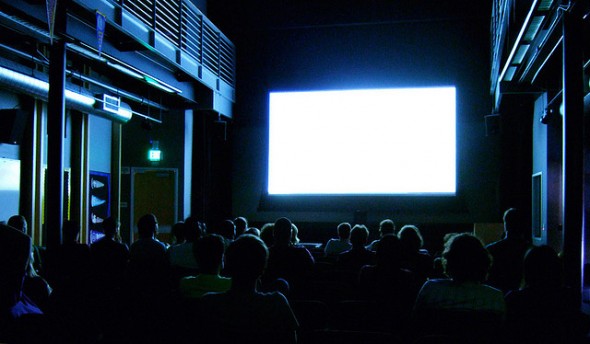
Reduce the Saturation
There is heat floating around Hollywood right now regarding ramifications of the year-to-year increase in content available to consumers. As technology becomes more accessible, more "filmmakers" decide to adopt the craft and produce content -- some of it award-winning, others obsolete from day one. This influx of media fights for the limited scope of primetime popularity, challenging viewers to pick their poison from a never-ending list of new feature films.
Quite frankly, some fans of the form are calling for a reduction. Stop making (funding) so many movies. Or rather, stop making the bad ones.
Good luck with that. With every newborn baby comes a newborn ego. It doesn't take a scroll through Facebook to recognize that every man, woman, and child thinks their daily events worthy of the silver screen. We believe our stories should be told -- everything from our pending breakups to our morning meals. We text it, share it, and shoot it. What was once only the functions of the elite are now in the hands of anybody with a smartphone. It's not exclusive. If you have a story to tell, you can tell it.
But who will watch it?
Aye, there's the rub.
The audience is in control.
Studios used to produce content that people watched, regardless of its merits. Everybody went to the new summer blockbuster, because there was only one. You saw it...whether you cared to or not. Studios had the power to produce whatever they wished for a built-in audience.
Not anymore.
Now the audience decides what they watch and the studios are left scratching their heads wondering what happened. Simple. They disappointed them. It's a lot like the '60s. (I could probably write an entire diatribe about how Batman & Robin singlehandedly destroyed the ideology of the summer blockbuster. It's when audiences decided they no longer trusted the touted content, in turn demanding greater access to preview the content before spending their hard-earned money. It's why we now have six teasers, three trailers, TV-exclusive content, and pre-release merchandise all before the movie hits theaters.)
Yet, I'd venture to say it's not really about money. Yes, we complain about rising ticket prices...but everything costs more money, always. No, it's not the money. It's the time.
Our time is limited -- it's the one form of currency we are losing more of. As our ambitions rise, so does the time it takes to achieve them. My entire generation is promised stardom, power, opportunity. In order to fulfill this promise, we've got to work harder for longer. Drive farther to work. Punch the clock longer to prove value. Commit to side passion projects. 24/7 email communications. All these ventures drive up our time commitments, while the cycles of the sun (well, earth) have remained constant since the beginning. That doesn't change.
So, time is the most valuable commodity and people have less of it to spend on media. Add to it the influx of additional media from year-to-year and you've got a flailing business model. Too much content, not enough time to consume it.
BUT...is that really going to stop movies from being made?
Never. It goes back to ego...remember?
So, what's the answer? A multimillion dollar marketing campaign can help, but good movies (just like good scripts) can get discovered. There will always be powerful people deciding on content. But in the end, audiences decide whether those rich powerhouses can truly deliver uniquely creative content. This largely comes down to giving audiences something they've never seen before. It's why superhero movies remain popular -- an easy fix. A superhero can do anything, thus consistently expanding the bounds of possibility. It's the one genre that filmmakers can continue to push -- more supernatural abilities, more improbable destruction, more rule-bending stories. In an over-saturated market, the ability to do something NEW is king.
That's the keyword: NEW.
Compelling content is "new." And yet, "new" can simply be old, reimagined. A great story will feel new every time you hear it. It's the definition of that word that will make-or-break your film. Misinterpret its meaning, and you could be setting yourself up for disappearance. A new story can be told with ten dollars, ten thousand dollars, or ten million dollars. Determine what "new" means to you and chase that.
Get Our Screenwriting Newsletter!
Get weekly writing inspiration delivered to your inbox - including industry news, popular articles, and more!





















